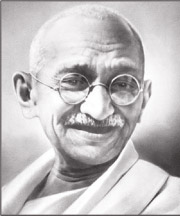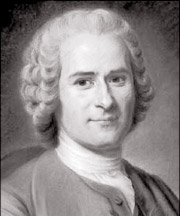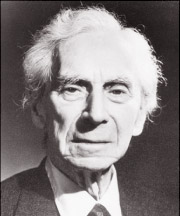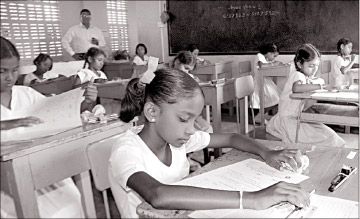Are our schools ‘exam factories’?
Ajith PERERA
The word education is derived from the Latin word 'Educare'. The
Latin word 'Educare' means 'to lead out' or 'bring forth' which
indicates that through education students' knowledge, understanding and
aptitude are nurtured.
These aptitudes, abilities and skills should be developed through
education. Furthermore, this indicates that education is not conceived
as a process whereby the child's mind is considered an empty receptacle,
which can be stored with information. Teachers, parents and elders who
use a variety of techniques and methods to fill the minds of the younger
generation with knowledge and information make Aldous Hurxley's
statement alive - 'Unlike filling a sack with goods a human mind cannot
be mechanically stored with knowledge.'
 |
 |
 |
| Mahathma
Gandhi |
Jean
Jacques Rousseau |
Bertrand
Russell |
Education entails the development of the 'whole man' where by the
individual acquires a depth of knowledge and understanding. The
recipient of such education is referred to as the 'educated man.' Since
education moulds behaviour patterns in a positive manner, such
behavioural characteristics should be agreeable to both individual and
society. As education is a process of living, whatever knowledge that is
acquired should be utilized to shape and mould one's life.
Ideal society
Socrates stated that, 'education is the process which necessary
knowledge is acquired for understanding oneself.' The notion is relevant
even today. For the process of living there is nothing more relevant
than knowledge. One of the best known sayings of Socrates is 'I only
know that I know nothing'.
The conventional interpretation of this remark is that Socrates'
wisdom was limited to an awareness of his own ignorance. Socrates
believed wrong doing was a consequence of ignorance and those who did
wrong knew no better. The one thing Socrates consistently claimed to
have knowledge of was 'the art of love', which he connected with the
concept of 'the love of wisdom', i.e., philosophy. He never actually
claimed to be wise, only to understand the path a lover of wisdom must
take in pursuing it.
Plato who lived in Greece in the 4th century B. C. made education an
instrument for the training of rulers and the establishment of an ideal
society. In the Republic he says, 'education is the most noble and
beautiful thing.' In the Laws he puts forward the idea that, 'the good
that results from education is that not only does it produce noble men
but such men learn to act in a noble manner.'
Child-centred education
Jean Jacques Rousseau who lived in France in the 18th century is not
only responsible for bringing about an evolution in education but spoke
vehemently for the freedom of the child in education. According to him
education is related to nature. Being a naturalist philosopher, he says
in his book Emile, 'the child's education should be in accordance with
his/ her abilities, needs and interests.' He can be considered as the
chief proponent for child-centred education.
The philosophy of John Dewey, the American philosopher says,
'education is a process of living and not a preparation for life.' He
further says, 'education is the organization and reconstruction of
experience.' He gives a dynamic meaning to the concept of 'experience.'
While meaningful experience leads to meaningful education, it brings
about the growth of the individual. According to him, in the traditional
school the passive learning experiences the child encountered were not
meaningful.
On the other hand when the child interacts with the environment and
the active experiences gathered through problem solving, discovery
learning, exploration, observation and activity learning is considered
educationally meaningful.
 |
|
Doing their
best at the exam. File photo |
Bertrand Russell the English thinker stated that 'education is the
process through which a person's development is fostered, his cultural
heritage is transmitted and a useful citizen is produced.' He refers to
the socialization of the individual with the transmission of his / her
cultural heritage. Evidently, a useful citizen is not only one who
acquires useful knowledge and practical skills, but also one who is able
to think creatively.
Mahathma Gandhi's ideas on education are incorporated in the 'Wardha
Scheme of Education' put forward by him. He says, 'by education I mean
the all round drawing out the best in child and man, body, mind and
spirit.' He believed that education should foster the total development
of the individual. He rejected the education system with its purely
academic bias under the colonial rule. Since he accepted the fact that
education should have academic as well as a practical bias, he
implemented the Wardha Education System which proposed craft-centred
education.
It was he who introduced 3H system to education. He said that
improvement of head, heart and hand (knowledge, attitudes and skills) is
the main objective of education.
School curriculum
The educational aims are broad. It takes a long time to achieve them.
It is difficult to measure the outcome of educational aims. A teacher
cannot achieve these broad aims by teaching one lesson in the school
curriculum.
Having read the philosophic thoughts of the 'Precursors of Education'
let us question ourselves whether we as parents and teachers encourage
our children to acquire knowledge with experience for understanding
themselves or to be exam-oriented?
'To produce a good citizen' is one of the stated national aims of
education in Sri Lanka. It is not at all clear when this process of
producing a good citizen begins and ends.
It has to be a continuous process. There is another similar aim; 'To
produce a person with a good character.'
This is again a continuous process of which the beginning and the end
cannot be seen. Such aims cannot be achieved directly by teachers,
Principals of schools or planners of education. However these aims are
relevant to education.
In the process of a factory we are aware that the row material is
converted to an end product and the row material gets a different shape.
For example, a lump of clay is turned into a plate or a pot. When clay
is inserted to the machine we know outcome is nothing but a clay
product. But in the process of education when a child is admitted to
school at the tender age nobody can predict who this child would be at
the end of the long process school education.
Principals of schools should not plan to achieve these broad aims.
They should have definite and specific short-term objectives, which can
be evaluated or measured at the end of the programme. Educational
objectives should be directed towards educational aims always. 'Aims are
the final out come of the process. They are idealistic in nature. We try
to achieve aims. The practitioners had to develop educational objectives
based on those educational aims.'
Education is a process in which all three important aspects;
teaching, learning and evaluation are interlinked. It is vital to
maintain a good relationship among these three aspects if we are to
maintain high standards in the education process. It is necessary to
have an understanding of each person's role; the role of the student,
teacher, Principal, education planner and curriculum developer. Also it
is important that there should be a good integration and good
coordination among these parties.
Values and attitudes
The teacher is guided by the educational aims and objectives in his
task to direct, guide and motivate students in learning and in selecting
the correct learning activities and relevant teaching methods to achieve
the learning outcomes.
The teacher should know clearly the results of teaching that is
behaviour of students after learning. They should be aware of the new
knowledge, new competencies, values and attitudes that students will
acquire as a result of learning. Then only can the teacher perform his
duties efficiently and productively.
It is easy for the students to learn when they know what is expected
from the learning tasks. It is easy for the students to plan their
learning tasks when they know what new knowledge, competencies, values
and attitudes are expected from their learning tasks.
If the objectives are clear the teacher can easily find out how much
the students have learnt and where they have gone wrong. Also it is easy
to identify the teacher's mistakes and shortcomings. A meaningful
evaluation or an assessment can be done only when the objectives are
given. This indicates that when objectives are identified early then
only can there be fair integration and coordination among teaching,
learning and evaluation.
'The principal goal of education is to create men who are capable of
doing new things, not simply of repeating what other generation have
done - men who are creative, inventive and discoveries.
The second goal of education is to form minds which can be critical,
can verify and not accept everything they are offered'
- Jean Piaget
The present system in our schools is deviating from these accepted
norms because the teachers and Principals are pressurized before
examinations.
The whole social set up is far from the principles of education and
the values of education because the performance and the cleverness of
the students are evaluated by examination results.
All these high principles are mere words that are holidaying in
books. They apparently become useless before examinations. We are forced
to run in this mad rat race where our innocent children become heartless
machines or 'killers'. Students who are deprived of many treasures in
life; nature friendly life, freedom, free thinking, enjoyment etc.
become robots who claim their lives when they become failures before the
demands of their parents and teachers who set goals in life.
Good citizens
If we ask parents who admit their little children to school what
their main aim of sending their children to school, they have high
ideals like making their children good citizens or making them fruitful
people. Unfortunately they forget or they are made to forget these high
ideals after few years especially before Grade Five scholarship
examination.
The parents especially the mothers behave as if the particular
examination is meant for them or if their children get failed as if they
are black listed. This is a crime. I do not how long will it take the
responsible authorities and parents to realize the crime behind this?
The school should be a place where children enjoy themselves while
identifying who they are and designing their own future. If the schools
are 'exam factories' the opportunities for such ideals are hindered.
Finally our children are both failures in their exams and life as well.
The government examination results provide enough evidence.
The writer is a teacher, lecturer of Child Psychology and Classroom
Management
|



